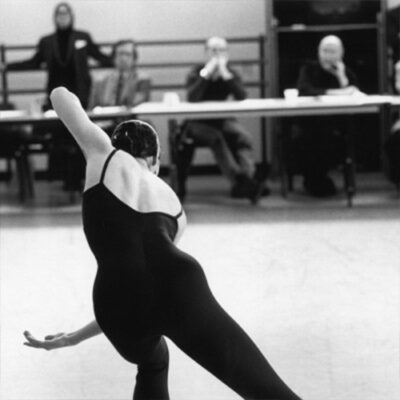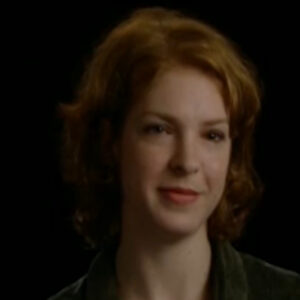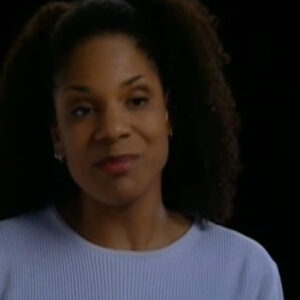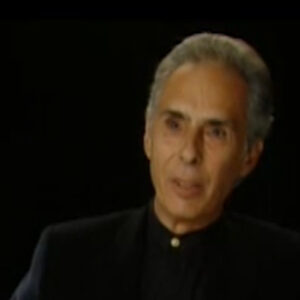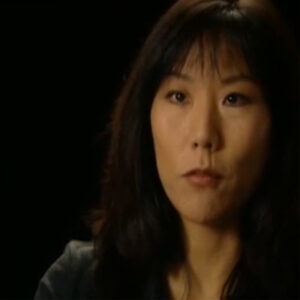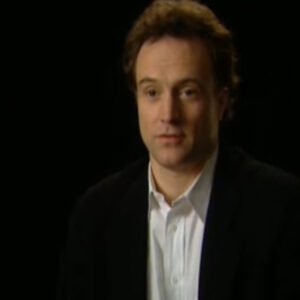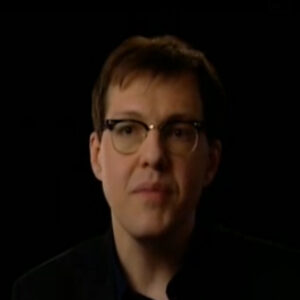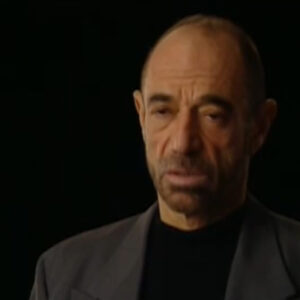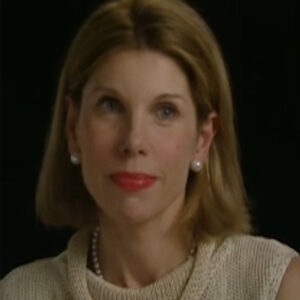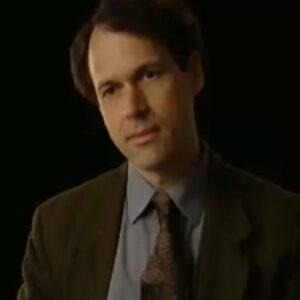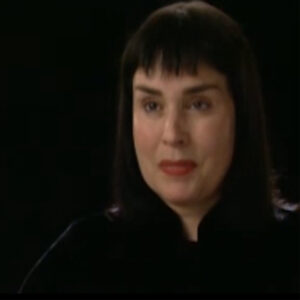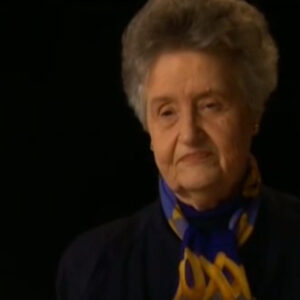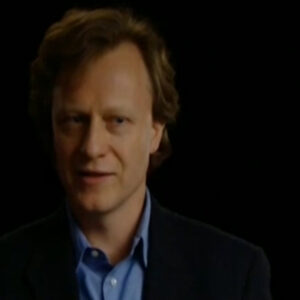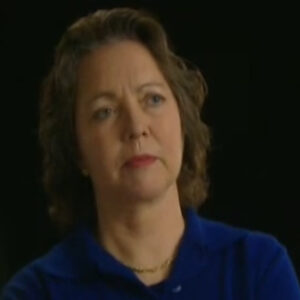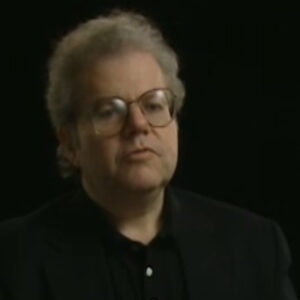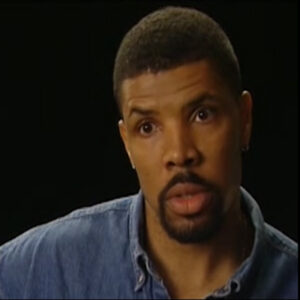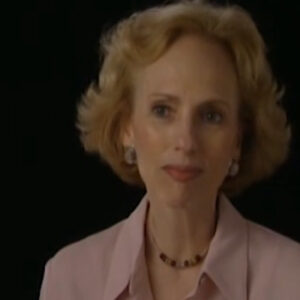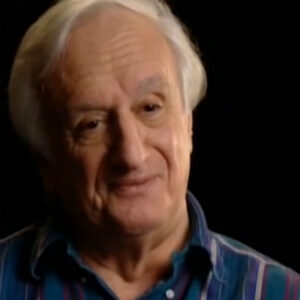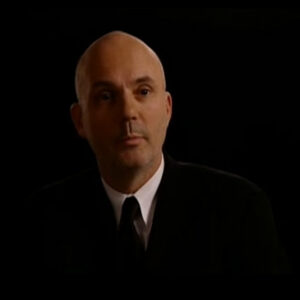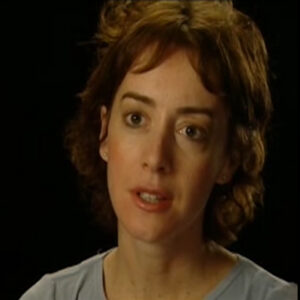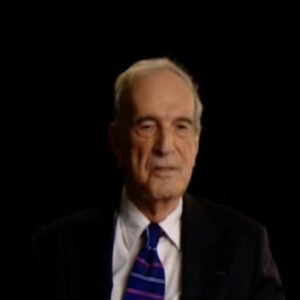Speaker Well, let’s just start at the beginning to make a chronological sense of it. Tell me about your audition. Tell me, how did you know with this drama division did not exist yet? How did it come into your mind that this would be a place to go? Things to do.
Speaker My brother was in the dance division of the Juilliard School at that time. It was the Juilliard School of Music. And he told me that they were auditioning actors and I only auditioned to Please my mother and my brother. I did not want to go to school. I was having too good a time living in New York City and auditioning for Broadway musicals. And I didn’t do terrible. I didn’t do a lot of preparation. And I picked very obvious classic on a very obvious classical speech and a very obvious contemporary speech and went to the audition begrudgingly.
Speaker And I just did what I did.
Speaker And at one point, Michael Carns suggested as an improv that I had received a rejection letter from the drama division of the Juilliard School. And I acted it out and I made them laugh. Then they asked me if I could sing. And I I had a choice of an aria or something from a musical called Fade Out, Fade In. And I chose one from the musical, which is a Carol Burnett doing a Shirley Temple imitation. And I got in.
Speaker I got in, and when you got in it, suddenly your attitude about going, it completely changed.
Speaker I felt I’m special. I’m going to the Juilliard Drama Division and I was already living in New York City. So I proceeded to organize my life the day before registration.
Speaker And my roommate at the time didn’t like me coming home from school doing all of these vocal exercises. So she asked me to leave. So then I began sleeping on floors of friends’ apartments like most of us did for the whole first year.
Speaker We’ll talk about some of the you know, when you first started getting there, this kind of classical training, these lists of classes, these things, I mean, did you have a sort of expectation of what kind of things you were going to be doing or was everything a lot of people talked about the hodgepodge of something that came and went in the first year isn’t working well.
Speaker I mean, how was it for you when I had no idea what to expect and we had no classes inside of the Juilliard School. We were housed in the International House because Juilliard was so filled. And so we had classes and hallways, classes and gymnasiums, classes in the strangest environment. And of course, I didn’t know what to expect because I had I didn’t prepare to go to a conservatory. I don’t think that Juilliard is it’s more of a conservatory than it is a college. And so everything was you know, I was awed by it all and. We had several classes that don’t exist in the program anymore because everybody was finding their way, including the teachers, and that first year John Houseman managed to find thirty six of the craziest people he could find for the first year. And we all realized early on that we outnumber the teachers, so. It was loony. It was completely loony the first year of Juilliard, it was nuts.
Speaker Now, everybody has said that, and I shall ask you to delve into what what I mean, you can evoke what, what, what not what we had in our first year.
Speaker There were. Actors that came from all over the country were incredibly unique, and I think probably the most talented of our class didn’t make it past the first year or the second year at. And. Our teachers were professionals, they weren’t teachers, they were. People that were in between acting jobs, especially the acting teachers.
Speaker So.
Speaker I don’t even know if I can say this, I remember when our version was telling these vulnerable 18 year old 18 year old students that acting and then leaving to go to mass. And we’re like. Wow.
Speaker And then some the next teacher took over for a day and said, OK, a lot of this is what it’s about. We went.
Speaker And it just was like that. The way I think we learned by default. I mean, I do think that we learned that there was no one technique to acting because the school employed so many different.
Speaker Actors that were teaching, acting that believed in a different method, you know, there was a method actor. There were some, you know, external actors, you know, as far as teachers were concerned. And nobody agreed on a technique. Everybody had something else to say, which was terrific for the actor. But when you’re a tender 17, 18 year old kid and you’re taking everything that your teachers are telling you to heart, it’s very confusing. So when we scoped out that they didn’t necessarily know what they were doing, we had a free for all with the teachers to know. It was really it was one big free for all the first year. As a matter of fact, I think John Houseman actually told our class that he was going to cancel it, start Juilliard with a second year.
Speaker Tell me a little bit about know, obviously, the legendary looming figure, but as someone who spent quite a bit of time with him. Tell me a little bit about what he was like as a character, what his relationships. Well.
Speaker As I said, I didn’t really want to go to school or maybe I didn’t say that, but I didn’t really want to go to Juilliard. So when he stopped me after my classical speech and told me that’s not what Shakespeare had intended, I saw this big Santa Claus coming down to the foot of the stage and I didn’t even know who he was. Just, you know, this rotund, white haired, bearded man. Then when we started school, he was imposing and then he became frightening. He. And I don’t know where that I mean, how he instilled fear in all of us, but he certainly did in me. I think that I could never bring myself to call him John. And after we spent eight years together, four years at Julia and four years with the acting company, I still could not call him John. Everybody else did. I think maybe one or two of us could not bring ourselves to call him John. He. Was magnificent and. Scary again to vulnerable 18 and 19 year old kids. One day I said hello to Mr. Housman in the new building and it was an elevator full of people. And he turned around and said, Louise Brunskill said, You’re the most illiterate person she’s ever met, reducing me to three inches tall and embarrassing me in an elevator full of strangers. And those are the kind of experiences that I had with Mr. Housman. He wants to throw me out of school on several occasions, and I’m not quite sure that he was ever even fond of me until. A board member of the acting company. Told me to my face, I put my money on you, and I think that had to turn around Mr. Houseman, because they were giving him money to put on the blaze. But in school, I didn’t I didn’t get a whole lot of support from Mr. Housemen.
Speaker The Battleborn with.
Speaker Oh, to.
Speaker And, of course. Michael Conn is now head of the drama division.
Speaker This is going to go it’s going now, and I had had many visions and he was quite young at that time. What?
Speaker What was Michael, what was what is your experiences of like our teachers in the first year were strict.
Speaker And for the most part, frightening and Michael, especially Michael Cohen especially, was especially frightening to all of us because he was the head of the acting department and I can recall that. I don’t know whether they do it any more at school, but they were trying to break down the individual. And create a Juilliard actor at all costs, and it cost several students a lot.
Speaker And I remember in these acting classes, we had to do inanimate objects. Whatever, and I would just I’d watch Michael systematically destroy a student.
Speaker May as well, and you don’t necessarily recover from that.
Speaker So.
Speaker I’ve never taken another acting class, so I don’t know what acting teachers do. I don’t I do know that they don’t do it this way at Juilliard anymore. We were we were the first class. I think that the teachers and John and Michelle sundowning were all on the line as well with the prestigious music school. They had to prove that they could develop American classical actors. So there was a lot on the line for the teachers as well as the students, so nobody was taking any chances and everybody was going to make sure that we learned. Regardless of how we learned and it was it was costly emotionally, too, to many of us, so I see Michael now and Michael as pleasant as can be, but I don’t necessarily remember my that way.
Speaker I have also seen him be quite.
Speaker Hard with people, I mean, just the other day, the class, the actors that I follow and sometimes you frowns, you know, and Michael stood up in the middle of his speech and went over and.
Speaker You know, not not him, but it was like push, push, push, push, push, get rid of that. And, you know, and he was in the middle of a Winter’s Tale. It was like he was like, oh, my God, he’s coming over physically.
Speaker Well, there was there was always sort of the threat of violence. Yeah.
Speaker What is what was it like? I mean, you know you know, Housman once being, you know, head of the Mercury Theatre, was there a lot of, you know, New York, 1968? I mean, was there a lot also of kind of like political hustle, bustle amongst everybody?
Speaker No, we were training to be actors at that school at the expense of everything else in our lives. We were at school 13 hours a day, six days a week. And then for those that didn’t come from New York City, they had to battle. The early 70s in New York City, which was a very rough time with no money. The political thing happened in our school after the Kent State shootings and NYU, Yale. Juilliard, and I’m not sure if Harvard was involved. Yeah, I think Yale and NYU are certainly more politically minded than the Juilliard School. Because it’s there’s more of an overall education there, the people that go to Juilliard are performers, every single one of them. Nobody wants to be a teacher. And so the academics we take are geared around the performers. You know, musicians are brilliant at math, so there’s math for the musicians, but when the politics happened at our school, the actors got involved and. The musicians didn’t get involved, not very many musicians and dancers, a few of the dancers got involved, but it was mostly the actors and it was about the drama schools and that particularly this area, New York, New Haven. Rallying behind. The Kent State. Students, well, it got out of hand. And but I don’t know whether it actually got out of hand, except that I remember that. There’s a term and I don’t even know what priority a one or a one priority or something like that, and somebody alluded to the fact that. We there was an instigator at Juilliard, somebody from the government. That posed as a student, a disgruntled student, and actually instigated us. At Juilliard, my hands, my hands. I mean, I don’t know why Juilliard, but it got out of hand and it’s a matter of fact. It disrupted the the drama division. Kids were asked to leave school. Kids left voluntarily because they felt as though what we were doing was not as important as protesting. I I don’t know what to say about me, because I because it came and went that fast.
Speaker Julianne is isn’t necessarily a hotbed for politics. It’s you know, it’s I don’t think it is, at least not when I was there.
Speaker I think and I have to tell you about Tony zero, God rest his soul, very brilliant actor who actually we had to have just taken when we went to the new building and Tony went down in full drag before, you know, everybody was wearing drag and he had huge lips and he had his lips painted. Rodney pulled a red dress, red sequined dress. He was a giant. He was about six seven in this red dress, was like a short skirt on him and combat boots and went down and decided to take it. And I remember Peter mentioned at the time and John Houseman chasing down Tony or Tony, and they had to get that ID picture from him. I mean, we created a lot of ruckus in that school by the very nature that we were actors and expressive. So we’d be the first ones to get involved in politics.
Speaker But there must have been quite a catch, if you could call it a catch 22, but I mean, it sounds like something may have stopped this basket of.
Speaker Loved it, hated it, was caught his own. I mean, did you know what I’m getting out of? It sounds like he created it and then, in fact, fueled it and then lost control of it here.
Speaker They don’t ever lose control of it, but. I don’t think that the teachers or the program was as prepared as the students were prepared to receive the program, and when we saw them floundering, we became bad children.
Speaker Glenn.
Speaker What do you remember, because I know he died not long after Michelle, you guys came, but Michelle and Suriya and and that sense of a sort of his notion of style and theater that he was bringing this kind of, you know.
Speaker Old Vic, Young, Vic, you know, English training people are the people that sort of came from that school. What was your feelings about him? I mean, everyone sort of speaks about him in this very loving.
Speaker Yes. We saw very little of him, actually.
Speaker I mean, and he didn’t speak that actually use his name because I was OK with Michelle Southern.
Speaker He was.
Speaker At in the first year, it was at the school, not all that often. I never had the opportunity to work with him and he spoke little English. I didn’t speak very much and he spoke little English. It was wonderful to have him around to have a European influence. And that was their their desire was to take European, Russian, American technique and apply it to an American actor. And Suriya, we had a lot more to do with his wife, Suria, than with Michelle. Michelle was only in the first year. He was wonderful. And he said some incredible things that, you know, that have become. Lessons for me, for my life, you know, for my acting life, and it was we thought it was untimely when we lost him because I felt that he was our rock. He was the the ballast in this whole confusing first year, not that John wasn’t, but that maybe Michelle had a more of a handle on what was going on, what they were trying to do.
Speaker Well, he certainly had such a history with in school, you know, and from Strasbourg to London, what what kind of things did he say?
Speaker Well, they were acting things. The first thing we talked about, he said, if you cry in the audience cries, that’s good. If you don’t cry and the audience cries, that’s also good. If you cry in the audience doesn’t cry, that’s not good. And that was key. That was one, you know, acting lesson that I heard. And was it was ke. He brought in mask’s.
Speaker Which were phenomenal.
Speaker Try to remember what he said to David SRAM, which was a brilliant.
Speaker I can’t remember, I could just see it in my mind. There was just wait to the whole program when Michelle was in the school.
Speaker And what what kind of I mean, tell me a little bit about some of these different classes. Of course, the voice and speech death has become notorious, reached its peak, is maybe becoming less of a scene now. But from movement to makeup to Alexandrine, what things what things were you were you taking what became the core of the program and what was the experience of them for you and why you were doing them?
Speaker We we had.
Speaker Style with Bellbird Act, that was pretty much, I think, the third year, but the first year. First, your acting and speech, acting speech and voice, and the second year we started to get more into we’ve got a mask work, I think in the second year of Juilliard, which was invaluable and movement with money, Akim was invaluable and honest. She, to me, was the price of admission to deliver on a cycle which I learned more about acting in her dance classes than I did with any of the acting teachers that I studied under at Juilliard. There was something about her focus, her discipline, her strangeness. That I think channeled, focused all of us when we took one of her classes. She was very hard, very hard on us.
Speaker But.
Speaker I learned more from on a Sokoloff and from PLF 11 masks than I did. From people trying to teach me how to act, and we didn’t get a lot of the information that the subsequent classes did, because I remember one day Jerry Friedman, one of our directors, looked at a, you know, a section just staring blankly back at him. And he was talking about breaking down a script. And we just went and he said, you haven’t been given a class in breaking down a script. And we went, we don’t even know what you’re talking about. What do you mean breaking down a script? Are we how we actually got through four years of Julia, those of us that made it through the four years is beyond me because a lot was left out and a lot that we took is no longer there. I mean, we had serious birds, which was sort of like a flock of pigeons doing figure eights. Nobody knew why in the middle class were doing this. I thought there was an overemphasis on speech and voice while I was there. So much so that I rebelled from it, and I certainly didn’t make I made enemies in the in the speech and voice department.
Speaker Who are you studying?
Speaker Liz Smith voice and Edith Skinner speech. And I just didn’t see the point of it. That’s my own problem, but I didn’t see the point of its importance at that point. We were not learning how to act.
Speaker And yet.
Speaker One one was like, where does that fit into the whole picture to know I for me, that’s why I appreciate it.
Speaker I think the silent classes, the movement classes more than I appreciated. You know, the technical classes, not until I understood how that applied and we couldn’t until we had a stronger acting department, and that didn’t happen while I was there. We had phenomenal teachers. We really did. But as far as a technique of acting, as I said earlier, you know, it was catch as catch can.
Speaker Do you also agree with with Robert Williams? I don’t like him at all. Robin Williams referred to him as Ichabod Crane. Yeah, strike.
Speaker Yeah, no, I wasn’t I didn’t like him at all. I mean, after our own teachers, we came to hate. I didn’t like the replacements. I had an allegiance to the ones I came to hate.
Speaker I actually went to I went to France and interviewed Peter. Oh, who’s one? I love you too now.
Speaker But what is it about that class? You know, he has forever remained for everybody.
Speaker Just this just moment of peace in the storm. You know, this this this thing that is so that helps them move forward.
Speaker Or maybe it is because the people care his method of teaching people, but loving them really. I mean.
Speaker Well, I think I think that said, I think that Peter came to the school at a time when they were desperately hurt students and his absolute. Glorious and glowing self filled with love and then this great gift of masks, everybody couldn’t wait, nobody ever and nobody ever missed any class, that it would be an incredible insult. Pure would be so disrespectful, disrespectful to him. I mean, we didn’t consider that. I didn’t consider that with other teachers. I wouldn’t go near other teachers classes because I had I just had no respect for them or no desire to learn what they had to offer. But Pierre was a different situation. Pierre was. So generous, so nurturing, and then brought this phenomenal technique of mascot, neutral mask and character work to the actor and taught again that that again, that’s not an acting. It is an acting technique, but it’s not. It’s not necessarily an acting class, it’s not breaking down the script, it’s not developing character, it is developing character in a whole different way. It’s a it’s a physical ization of developing a character. We had more fun and it was more creative than half the other classes we had. You know, for me, it was pure. It was money. It was it was on a Sokoloff Marijan cell. This was a great champion of mine whenever she directed me working with Boris tomorrow and on a play, but. You know, it’s hard to think of the acting classes, it’s hard to remember who taught me acting at school. I mean, I know that Renee did and Marian did and Michael didn’t and Jerry Friedman did and but I can’t remember. Distillation of that as clearly as I can on his class, moaners, class, peers, class, do you think?
Speaker In some ways in that and now very much being an actress, that in a way can you teach an acting class? You know what I’m saying? It’s like you came away with this.
Speaker Can I teach it or or can it be. Can I? Yes, absolutely.
Speaker Yes, you can definitely teach acting. Not everybody can act. But you absolutely can teach acting. I mean, Mary Lou Rosato is a prime example of someone who is so learned. I remember staying at her house in Riverside Drive. I don’t know why she still has the same apartment. And she was talking about the well-made place. And I’m going, oh, what are you talking about? I mean, I really came to school is ignorant and ignorant. Can be. And Mary Lou can interpret. So magnificently text. And watching Mary Lou at work was an acting lesson for me, watching her not act necessarily, but but deciphering a character in a classical play was an acting lesson. She is she is phenomenal at that.
Speaker Mary Lou could teach that. And I think that if if you if your thoughts are organized and you have a technique to share, you can teach acting.
Speaker But if you’re flying by the seat of your pants, you know, if you’re an organic actor and it’s all, you know, coming out of wherever, then I don’t think that you can you can take that and pass it on to a student. You can you can give them advice and you can tell them how you do it.
Speaker And I think we what we had more of was sadistic, frustrated.
Speaker People that were teaching, acting, maybe not for the first time, maybe for the first time, I don’t know I don’t know the history of my teachers, I didn’t bother to ask. We were intimidated as well. You know, you know, this is your teacher and this is the person that’s going to teach you acting at that time. You didn’t go like, well, what have you done? How come you can teach me, you know, who are you to think you can teach acting? I don’t know whether they do it now, but now I think about why didn’t I find out who Jean Loesser was or, you know, who who are these these people that say they’re teaching me or who are they? And then they were allowed to leave, so in the middle of something you think you’ve got a grasp on, they leave in, the next person comes and it goes, yeah, well, I don’t know what he’s talking about. This is how you do it.
Speaker In the spirit of this jumble of ideas.
Speaker What made you stay and stay out of the acting company? What where does that leave where you would like? OK. Let me get out of here.
Speaker I don’t know. I guess I didn’t have the courage actually to leave. I certainly wanted to. And. I think I didn’t have the courage to leave the acting company sooner or I should have left sooner, but the school was my life. There are eight years of my life missing and that was dedicated to Juilliard and the acting company, you know, I mean, somebody was going through my record collection and actually said, Patti, there’s a decade of records missing here. And I went with that. What do you see talking about? All right. That’s that’s the year I was at school. I mean, I consider the school, the school continuing in the act and company and were being being paid as professional actors, we were still under the aegis of John and Margo and Liz Smith and Michael Kahn and Jerry Freeman and everybody that was still at Juilliard. You know, the acting governor was just an extension of Juilliard. I stayed in school because. Once I started to act in the place, I fell in love with classical theater, I fell in love with plays, I wanted to be there. I wanted to be there when things.
Speaker You know, turned ugly as they will and I did through the eight years, I didn’t have the courage to leave. I thought that this was the answer. I didn’t have the guts to think, well, you know, you can strike out on your own. There’s a lot of independent people that did leave, didn’t know that this was not for them, and went on to better, bigger and better things.
Speaker I was didn’t do that. I stuck.
Speaker Sometimes I question that decision to this concept of this company that he was obviously very much making a company and was going to keep you guys as a company, and there was something very intense that he had in mind that must have been hard to get out of the grips of philosophically and literally.
Speaker And what did what did you think of this sort of and what are your what do you think now of this sort of this quest for the regional theater company that he was developing?
Speaker I think, you know, in our third year in a production where we opened up against great odds and we at this point we had.
Speaker Come to accept each other, we all made this invisible circle around each other, and that’s what John said, this ensemble was created ensemble of actors in order to get the show on when we started touring. It was we were among the highest paid actors in equities simply because we were working 52 weeks out of the year and we had a ball and we were playing great roles in classical theater and we were going to where the audiences wanted to see. These players, so. For the most part, it was very fulfilling. To be with the same actors, to share great, great, great humor, you know, among this group, this core of actors, and to be acting. We’re doing what we set out to do, become professional actors. And we I got I can’t answer for anybody else, but I got like 15 years of experience in four so that every time I walk onto a stage, I’ve been there before. You know, there’s not one situation that can throw me we had we had, you know, they would get the wrong dimensions from the tech directors of the places we were going into and, you know, half of the measure for measure that was falling off the stage. So we would have to quickly make an adjustment in the the in one exits were gone in the in ones were out.
Speaker We were on an altar of a church in Nebraska. I mean, we were put in situations that. I’m sure they’re not put in now, we’d have to, you know, snap our fingers and be able to suss out how loud we had to speak in this particular day because we were not miked and we would go from barn to a 90 seat house, from barn to a 90 seat house. We’d go to an incredibly hostile audience to an incredibly.
Speaker Loving and grateful audience can never forget Conway, Arkansas, and I got off the bus going on and I always have to do three sisters in the boondocks and that audience was ahead of us that night. They were waiting. They’d read the play. They’d studied the play in anticipation of the of us coming. So I think John’s idea of a regional theaters is correct, I mean, it does not exist in the States. I mean, in the in the cities. The theater doesn’t just exist in New York, Chicago, Boston, San Francisco, L.A. it’s alive. Probably more so in the middle of America. I hate it when I hear people say that, you know, sort of denigrate Midwesterners.
Speaker They were our smartest audience. They were our smartest audience.
Speaker And I mean, as he may know or not know, but I’ll tell you, it’s like, you know, there used to be this sense, at least certainly for the four years that followed view, that this this route into the acting company this morning when it was it was it was a treat.
Speaker It was it was the brass ring.
Speaker Now, of course, so the acting company still exists. I don’t think there’s a student there that would think about going to Hollywood.
Speaker That’s where they’re going. No, I mean, they wouldn’t think about going to the acting company. They wouldn’t. That dream is gone. And maybe it’s because you just can’t make it in there.
Speaker When we graduated from Juilliard and John, I mean, when we graduated from Juilliard, we all thought, you know, individually we were on our own.
Speaker Now, when they handed us an equity card in a suit on a Dominico bus and 52 weeks of work, we wouldn’t go at that time doing, you know, television. We were trained for the theater. We were not trained for film or TV. That was never those words were never in our vocabulary at the Juilliard School film or TV. I never, ever had a desire to go to Los Angeles because I was trained for the stage. I was in New York. The thing I was to do was to be on the stage. I was like a lemming. The thing I was supposed to do was perform on the stage when when we got when John gave us our equity cards and we had employment, we went I also at the time it was 1972. At the time stage actors were not really accepted in California. It’s much there’s much more reciprocity now where if you’re a stage actor, you can certainly go and get a television show on your television so you can easily star in a Broadway musical, you know, but and film as well. But at that time, it wasn’t if you were a stage actor, they kind of look at you as if you would not be able to handle a small screen.
Speaker Or, you know. A more.
Speaker A smaller technique of acting, I don’t know, I don’t know, it’s it’s a lot of whatever, whatever, if you have it, if you’re an actor and you’re trained, you can handle whatever.
Speaker So we did what we were told to do, we acted on the stage.
Speaker Now.
Speaker I was asked to go back to Julia about maybe eight, nine, 10 years ago, and I said to them, they said, what is your advice? I said, go west, make your money. You can’t make money in the theater. You cannot survive in the theater. And when you have, you know, a big fortune and you want to go back to the stage, they will roll out the red carpet for you. As a stage actor, I have a harder time getting work on the stage than had I gone to California and become a TV star. The doors would be open, but as a working stage actor in New York, I have a hard time getting a job, but it’s what I what it’s what I trained for the stage.
Speaker I didn’t train for anything else. And I think that the actors have come out of Julia now unless they. Unless they want that training. Unless they want to play those classical roles, unless they want to see America.
Speaker That’s why bother.
Speaker You know, I wanted I like I said, I want when I when those doors close behind me at the Juilliard School I was in for life, I chose that. I was thrilled to be there, even though it was, you know, an incredibly painful experience. I wanted to be there and I wanted to be on the road in classical plays. But now, I mean, I can’t see how the whole world is changing. It’s MTV bitts who’s going to sit through, you know, three hours of restoration theater.
Speaker Well, people in the Midwest would say, well, it’s very I mean, it is a very long road.
Speaker And, you know, I think the probably the reason they truly are in a lot of ways, what they now call the leagues, which didn’t really exist in your time, which is every one of the wolf that was an agent.
Speaker Now, we had those.
Speaker Yeah, not now. They’re quite you know, that’s the whole thing. Is that you?
Speaker You know, can you just get off the bus and look good? Exactly. You know, so it’s you.
Speaker For years, I I believe that actors are third class citizens in this country. And I’m not talking about the personalities that are developed and glorified on TV and in film. I’m talking about the actors in the trenches.
Speaker They can’t get insurance, you know, that are high risk because of the job factor. So not permanent and I resent that.
Speaker I resent that you have to look good. You know that if you look good and you’ve just gotten off the bus, that you are, in fact, an actor. I resent that enormously. It is a noble craft. It takes hard work and a lot of sacrifice to fine tune to find home that craft. It is a craft. It is an ancient craft. And I resent the fact that as a trained actor, there are people out there that are called actors that have never was correct, never cracked an acting book or read a play.
Speaker I agree with you and a lot of people that have gone to Juilliard, whether or not they end up on a sitcom, said, you know.
Speaker When you are out there and you had that training read, check up and you read it, and when you get into a situation and then there’s another person that’s been trained in that way, you’re like, oh, you know, it’s like it’s like suddenly it’s like a kindred spirit because you’ve been around people who. Somehow got their number one goal.
Speaker You know, Mary Lou said it to me about seven, eight years ago. She looked at me and she said, We’re dinosaurs, Patty. And she’s right, you know, I mean, no, you know, it’s almost like no acting required anymore.
Speaker You know, no acting required, you do not have to know how to act in order to get a job or to convince people.
Speaker You know, of a character you’re playing, you have to know act.
Speaker Well, still on that level view, still sort of feel like a lot of admiration.
Speaker Giuliani keeps on kicking with this very traditional I mean, it is it is working on teaching you how to act. It’s not acting. It’s not saying.
Speaker Yes, of course.
Speaker You know, when I when you when you see even situation comedies that are as bad as bad can be and you see someone out there, and it’s difficult for me to I am still an audience member, but I also I have a different slant on it, you know, but when you see one actor in there that is not stepping on someone else’s laugh line has actually structured the laugh that they have, delivers it knows how to move. Knows what Paice means, you know, then you know that that person’s done more than just show up. And you appreciate that, I mean, I think it’s why people have love affairs with English actors that come to this country or even if they don’t come to this country, but we see them on the screen. There is a there’s a very different vibe in England.
Speaker I mean, theater is a tradition, whereas it’s not a tradition here. And the actors have to train.
Speaker It just makes you feel smarter. When you see something that, you know, I mean, I think it’s. It elevates you as an audience member when you see something, someone good. It’s like hearing a great.
Speaker You know, violinist watching, a great dancer seeing a great actor makes you as an audience member, feel good, better elevated. Yeah, I appreciate the fact that Juilliard is still trying it out, and I just hope that the actors, I hope they’re not soft. I went into the dormitories and I have nothing like the good old days. We didn’t have territories. We had residence hall or the floor. Tougher on us. And it created tougher people, you know, with a stronger survival instinct. We had suicide attempts and a couple of lockups in my class. We actually got pulled into Norman, Oklahoma, and Holiday Inn parking lot. And there was. Larry Raimund, and we all want.
Speaker Bus door opened when we looked at Larry with Larry. Was in the first year, we thought you were dead.
Speaker Larry was running around naked on the roof of some building up in Harlem that was going to Larry and we heard on a Larry offed himself.
Speaker There was Larry, he made it he made it through, but, you know, it was so so and the.
Speaker Pressure to succeed, the pressure to.
Speaker Perform the pressure to listen is intense in that school. And it’s less on the actor and the dancer, because by the by its very nature, we are an ensemble. But, you know, can you imagine your first violin, your first violin from your hometown, and you now are accepted at Juilliard and you’re facing 50 first chairs. And you all 50 have to compete for one first chair. When I was going to school, there was a high suicide rate.
Speaker Of success, literally, people that did not that successfully killed themselves while you were alive.
Speaker But yeah, but it breaks your breaks your spirit. I mean, you know, you’re exalted for, what, 12 years or 10 years, nine years of your life. And then you get to Juilliard and you’re you’re not exalted anymore. It just tears at the very heart of every part of your being.
Speaker My brother said it to me, not getting into Juilliard, it’s hard, Patty, it’s getting out straight.
Speaker Did you have an experience in this, maybe something that you don’t relate to at all, but it’s a strain and sort of followed? I mean, it’s certainly not going to be your experience, but did you have a sense of this struggle of all the black actors at school?
Speaker Oh, yeah, oh, I’m almost certainly yes, because there’s no there’s really not roles for black actors in classical theater.
Speaker There aren’t you know, there are a few, but there’s really not roles written for black actors or, you know, and yet. We had in our class, we had some we had extraordinary Steve Henderson, Mike Darden, Jimmy Moody, we had really, really strong actors.
Speaker In our class and.
Speaker I know that they felt that they had they were being treated in a different way.
Speaker And.
Speaker They weren’t I don’t think they were being treated badly, but I mean, it was like they I don’t think the school knew, you know, the drama school knew how to. First of all, they had to figure out what to do with us. You know, and we’re white. What are you going to do and in its classical theater and what are we going to do with. A black male or a black female? What are we going to how are we going to? Make it work, this is you know that in London, they’ll do a lot of what’s it called alternative casting. And someone actually said, I don’t like a friend of mine in London, says, I don’t like I said, I don’t like alternative Catholic because it’s asking me not to see what I’m saying and that there’s a valid point there. So they have to figure out what to do with us first, you know, the ones that look like they, you know, are written for the look like they’re built to play these parts and then so they weren’t. How do I say this?
Speaker I know that Mike left. But I don’t think Michael was happy Jimmy survived through the acting company and Steve left and Steve was a monster actor. Steve was so powerful on a stage and was, I think, among John’s favorite actors, he was overwhelmed by his power as an actor. So they would find projects for them.
Speaker But yeah, of course, we saw, you know, it was quick listen, we got it to I was short. I wasn’t black, but I was short, and therefore I would never be a leading lady, according to John Houseman.
Speaker And I was always left off the cast lists. All my productions were done in three or three or six, never on the main stage at Juilliard. Only the tall, high cheekbones girls got those roles, whether they could act or not.
Speaker So there was a lot of resentment coming from me, and I’m already built to do classical theater.
Speaker We all got it in some way, there was favoritism, there was some. You know. Like I said, they tried to talk me out of school.
Speaker I didn’t know that that was going on, you could ask Michael Khan about this, I don’t even know they were trying to throw me out of school. I found out my third year. In fact, they were trying to. Make me feel as an actor, so they had a reason to throw me out of school and it became apparently I became some sort of cause celeb for recalcitrant students at Juilliard. So sorry we go. I remember Patti Lupa, but everybody had some sort of cross to bear, whether you were short, whether you were fat, whether your nose was too big, whether you were black, whether you were Oriental. You know, they picked on all of us.
Speaker Breaking down the psyche.
Speaker Well, I’ve certainly had my third year student suffering, suffering, suffering all year on casting on now he’s got the part and now he’s got Claudio and much ado after what he claims three years. I mean, not he doesn’t have to claim I’ve looked at the last three years nothing. And still, you know, he’s getting the part. He was. Meant to play, I mean, if there’s a challenge in giving him I mean, he’s happy because he says at means I get to walk and talk. Now at the same time, you know, at least I get to speak a line after three years of talks.
Speaker I went through that. Actually, I went through that a lot. I mean, what they did to me is through every conceivable role in my direction to force me to fail as an actor. And what it is that in my class, I trained one person, one person of versatility. They could not categorize me.
Speaker Or they did not categorize me, whereas Mary Lou was the sort of character leading Lady Mary John was the leading lady. You know, there was a cigarette, there was an know and I was forever left. And I would fill in fill in Finland or when they were before we got to the main stage plays, I would go from the Pantheon Banaba to the student in the lesson and.
Speaker It’s a matter of fact, our production of the maids with the three misfits, Cynthia Herman, myself and Cynthia Habila became. A famous production while they were doing the big giacobbe in peace, women beware women on the main stage. People were coming to see, you know, the maids.
Speaker Can you tell me a little bit about these productions that went then went on, because, of course, I have incredible footage.
Speaker You know, there was this strange movie with Stacy Keach, if you remember, where you’re all sort of tell me a little bit about that movie.
Speaker And also, you know, they show, I think and I try to remember, they certainly show the school for scandal. I don’t remember that showing lower depths. I mean, it was sort of a performance. Piece of class, but I mean, it’s fun because it’s fun to see you off that point, but.
Speaker What tell me a little bit about some of these, like the school for scandal, these?
Speaker Well, the school for Scandal, I all of a sudden I was cast as Lady Tehsil.
Speaker And I mean, they were they were full scale productions. The sets were built in the Juilliard Scenic Shop, which is a massive and spectacular scenic shop. It has a wardrobe department. And we actually had costumes from Phoenix’s production. I was wearing Rosemary Harrison’s dress and freaking out. And it was it was they were gorgeous, gorgeous productions.
Speaker I had an antique fan that I broke on my first day in dress rehearsal. Because I was such a wreck doing the part, but I mean, they were.
Speaker The reasons why we went to school, you know, they were full blown plays, productions.
Speaker And did you learn an incredible not doing them, I mean, was it just changing your.
Speaker Yeah, once once we started to perform, what was interesting is where we really learned is when we left Juilliard, because Juilliard gives you to do three performances. So you you, you know, emotionally and psychologically gear up for three performances and you blow it all out in three and then you don’t have anything for the fourth. When we started to tour with the exact same productions we had done at Juilliard, we blew the fourth performance and we started losing bookings because we didn’t know how to maintain a role. We knew how to do three performances. So where we really started to learn was the first year of touring after the fourth year of school. That’s when, you know, we had a. Booking agent called Herbert Barrat, Mr. Grin and bear it, they used to put us on this one night stands. We had six classical plays with sets that were not built to tour.
Speaker They were built for three performances of the two hour stage and.
Speaker They can’t teach you maintenance and they can’t teach you what an audience teaches you. They can give you a technique.
Speaker And they can steal your bones and your heart to anything that might happen because it’ll all happen in that school for sure, but they can’t teach you maintenance. They can’t teach you ultimately. What it is to be an actor, unless the actor does it, but that’s true of any school and I think that’s true of any profession. You can, you know, have the most outrageous technique on a picolo, but unless you can, that you can pull that technique off in front of an audience, underperformance, conditions.
Speaker Nothing counts. So.
Speaker The audience taught us touring, taught us the actual every day of performance, taught us, taught me I can’t answer factually for anybody else. And they were nowhere in the picture then.
Speaker And not drawing from Juilliard, probably a million different actors, you know, whoever colliding. I mean, you have done television stage and you have a really fun goodbody career on that level. I’m sure a million people would kill to be able to do the diversity of things that you’ve been able to do. And maybe it’s this kind of, you know, rough and tumble thing that you were able to really draw from. I mean, do you think that’s unfair?
Speaker No, I think I think that my my training at Juilliard, however I was trained at Juilliard, is invaluable to me, invaluable. I mean, I really was in tears every night and my first year of Juilliard and then every other night in my second year at Juilliard. But what I. Learned at Juilliard and the four years on the road really did prepare me for the rest of my career and I am eternally grateful to all my teachers. And to the experience that I got there. And.
Speaker Yeah, if it really wasn’t for that experience, I don’t know where my career would have gone. I’m so glad that I went to school because I don’t think I could have maintained I went to Juilliard to maintain. I knew I would have a career on the Broadway musical stage. I just knew that at 15 years old before, you know, I’m graduating from high school, I knew I’d end up on the Broadway musical stage because of the voice, but.
Speaker Somewhere along the line, my instinct said, well, in order to maintain and have a long career, you need to train. And so going to Juilliard supplied me with enough technique and enough knowledge to be able to sustain a career over a period of time.
Speaker And if you guys get this is sort of a little sort of a side, but if you guys get that feeling when you were there that you were the chosen because all the four classes that follow you, I’ve talked to Greg Moesha to people who, you know, came in those waters that have.
Speaker No, they didn’t give it was the first year, but we didn’t feel chosen. Believe me, when we didn’t walk around going where the chosen ones know, we were like nursing black eyes and broken hearts. It was that was the impression. Yes, it was a special class sort of. It was a bunch of lunatics, a bunch of nuts, a bunch of wackos. And everybody came out somehow as the chosen class. There was less talent in that class than in subsequent classes. Less discipline and subsequent, subsequent, and we never said we were chosen. That was what somebody put on us.
Speaker We never once were made to feel special.
Speaker Well, maybe somebody was yeah, there were a couple. That were made to feel special. But not me.
Speaker And who are they’re great, who are their great love so often I find their great loves or not to be seen right now. I mean, without naming names. But, you know. Right. The great loves of the time are not the people. I mean, there is an incredible success rate from your class and of stellar success. I mean, not not minor success.
Speaker Well, the the the favorites. I think what they did, they did a disservice to a number of actors. Well, to in particular by hooking into what they did the first year of school.
Speaker And celebrating that and of course, not allowing them to fail. But reinforcing that one quality. Which for these two individuals was too old for them to be playing at that point. So that these two people have not grown as actors. And had the potential to be better, much better actors than they are. But they were nurtured. The wrong way. By John and by Margot and by Liz, and so that these two actors are almost caricatures of themselves. And it’s it’s too bad.
Speaker And the favorites, yeah, that the favorites don’t necessarily just, I think one of the most brilliant actresses, two of them, Nancy Nichols and when I got her name escapes me, I can’t believe that I adore her.
Speaker And I forgot her name.
Speaker Technical name. Forgive me. Kathy left after the first year. And it’s a pity that they did I mean, I think the most talented members of my class didn’t make. And what was left with the dregs?
Speaker Well, and then and then when the advanced students came, oh, give me a break with the advanced students.
Speaker Well, but they also said, yeah, yeah, yeah, yeah, because advanced my big butt.
Speaker Hello. We had just spent two years going to that school and we’re now in our third year and these three people come in and haven’t a clue as to what’s going on. But we’re told they’re the advanced students.
Speaker Now, nobody was buying it. And nobody was buying it.
Speaker I think it was Kevin who said also that he figured out soon afterwards that he that they were looking for a tape, but they came looking.
Speaker Exactly. That’s exactly what I was trying to say. Everybody sort of fell into a pattern there. You know, they were desperate to create this ensemble. And because I didn’t fit into the configuration, I got trained in a different way than everybody else only because I didn’t fit into the configuration and they didn’t like me, they wanted me out of school. And I came ahead. I came out ahead as being trained in versatility, but they would pigeonhole and I thank God for that. But they would pigeonhole actors into leading lady character, Lady Sopranos or whatever, and they didn’t have an opportunity to grow. Not all the time, but but for the most part, many of them didn’t have an opportunity to grow as actors.
Speaker But somehow in all this trouble and strife, everybody seems incredibly close from every class, there’s a bond that’s going on between the students, the naked runners for God, the whatever these.
Speaker Yeah, you give me your naked brothers for.
Speaker Well, I did Naked Runners for good start in Saratoga or Decatur, did they tell you?
Speaker Well, it started, I think, on the bus then I think, you know, the call the wild Cynthia Harmon, Jet Sagarin, Samaru juvies, Ben Hendriksen. I think they were the naked runners for God. Is there another name I’m missing out of that group?
Speaker You know, you’re on a bus for.
Speaker Three or four or five months at a time, and you’re you have to find ways to entertain yourselves because they also had a brilliant driver, Bob Blount, wherever he is, and he drove that bus like a jet, but they would book us.
Speaker Like, what, 12 hours apart? And we had to be there in eight hours.
Speaker So things started to go crazy, but at one point a naked run for God happened. It was when streaking was in L.A. I think we proceeded streaking. We were naked. Runners were gone. And I remember the naked running in a circular hotel in Decatur, Illinois, that I remember in Saratoga, where Mr. Husband wanted to see these naked runs for God. And they actually.
Speaker Take off all their clothes and everybody was gathering in this guy’s hall, I think it was in Saratoga Springs, the old.
Speaker Skidmore campus and.
Speaker They came out from someplace and they were stark raving naked and they ran up the stairs to John Houseman’s room, knocked down it, disrobed him since it got on her knees, kissed his penis, and he put his robe back on and went back in his room. At the end of that particular experience, people were in stairwells just shivering in trauma.
Speaker It was like, no, no, no. We saw Jon Huntsman naked. No, no, no, no, it’s not bad enough.
Speaker And then the next day, we had a big company meeting with Jon and we were doing something. I don’t know, we were terrified.
Speaker And he just started to talk to us about the production. And in the middle of a sentence, he said, I’m surprised to see you with your clothes on and then just continued. And it was like I mean, this was. It was. We it was insanity to its ninth degree, this four years of this eight years with these people.

